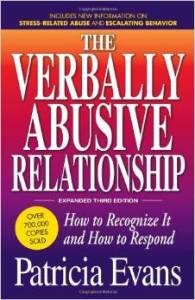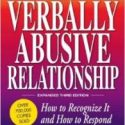 What do you do when your parenting isn’t working?
What do you do when your parenting isn’t working?
I’ve worked with several clients who have struggled with this challenge. Here is a composite of what I have observed and how coaching helped them find their way.
A new client contacted me. Rebecca, as we’ll call her is the mother of a pretty, bright, challenging and sassy teenager, we’ll call her Tracey, who was out of control. Rebecca, a now single mom, and I began the journey.
Tracey was behaving disrespectfully and playing her mother against her father to get her way. The parents were unwittingly allowing that, which resulted in Tracey’s plummeting grades and her getting into bad situations.
Rebecca expressed legitimate complaints and boiling anger toward her ex-husband and his mother who seemed hell bent on doing everything they could to undermine Rebecca’s authority.
In coaching, we acknowledge the struggle, but no result will occur by staying there. We move forward into discovering a plan for solution and for some that is the most difficult task. That proved to be the case for Rebecca.
The first ten minutes of each session normally spent rehashing turned into thirty. Several sessions later it was still nearly impossible for Rebecca to move past the anger and resentment and on to a healthy plan.
Feeling frustrated and very inadequate as a coach I dragged out all my coaching paraphernalia and sat in the middle of the floor hoping for some insight.
I stumbled on a lesson we had done in my NLP coaching class that gave examples of moving at the client’s pace, not how we coaches think the client should progress. By the same token it does them no good to constantly complain on a subject with no hope for a positive outcome. This situation was weighing heavily on me. How could I help Rebecca move forward? I sat in the middle of the floor in my little office and just let my mind go blank. I waited for some idea to come to me of how to help Rebecca; or more importantly, how she could help herself. My eye spotted a worn paperback I’d bought a few years earlier that had given me insight into my own family patterns.
In The Verbally Abusive Relationship, author Pat Evans writes about patterns we inherit from our parents. Ways that we communicate are not effective and sometimes harmful. When I flipped through the book thinking of Rebecca and Tracey and their troublesome situation I noticed the ideas were parallel to NLP.
- How do you speak to someone during a volatile conversation in a way that doesn’t halt communication?
- How can you have a heart to heart and say what you mean while keeping the door open for the other person?
In coaching we are taught to be a safe container where people process their thoughts. I had been that for Rebecca, but beyond that we were getting nowhere. During our next session I suggested the book to her. Bingo!
“As I read the book I cried, was embarrassed and called myself a horrible mother for passing on bad habits to my child,” Rebecca told me.
Although an emotional time for her the experience proved eye opening. Rebecca was not a horrible parent. We brainstormed different ways she could interact with Tracey as well as with Tracey’s father to define some common goals.
We made a massive action plan. We started by identifying things in common:
- What common desires did both parents wish for their child?
- What common discipline ideas do they agree on for their child?
- Which friends of their child’s did parents both agree were a good influence?
Rebecca made pages of notes and then met with Tracey’s father and grandmother.
From there, on common ground, they became united on how to raise Tracey. Tracey was no longer ruling the kingdom. During this process Rebecca realized that she had formed a habit of telling people what she thought they felt, or what they were thinking. Then she and I worked on some related role play.
Rebecca is now effectively communicating with her “difficult people”, as she called them, coming from a sense of curiosity which has changed the entire dynamic. When questioning her daughter now, instead of an accusatory tone, Rebecca has acquired a tone that denotes of a sense of curiosity, which has opened up channels for response.
The same is true with her ex-husband. Their parenting relationship is healthier and they are unified in their decisions about their daughter. Instead of attacking each other, they are learning to ask questions in a more dignified way. Rebecca said she has changed the way she communicates in her friendships and at work. She feels that people hear her more these days and also that she is able to listen.
This was a difficult series of sessions for me. The end result was well worth it. Rebecca is not feeling frustrated since she has learned to articulate what she is feeling in a way that allows others to listen and not feel threatened. Yay!
